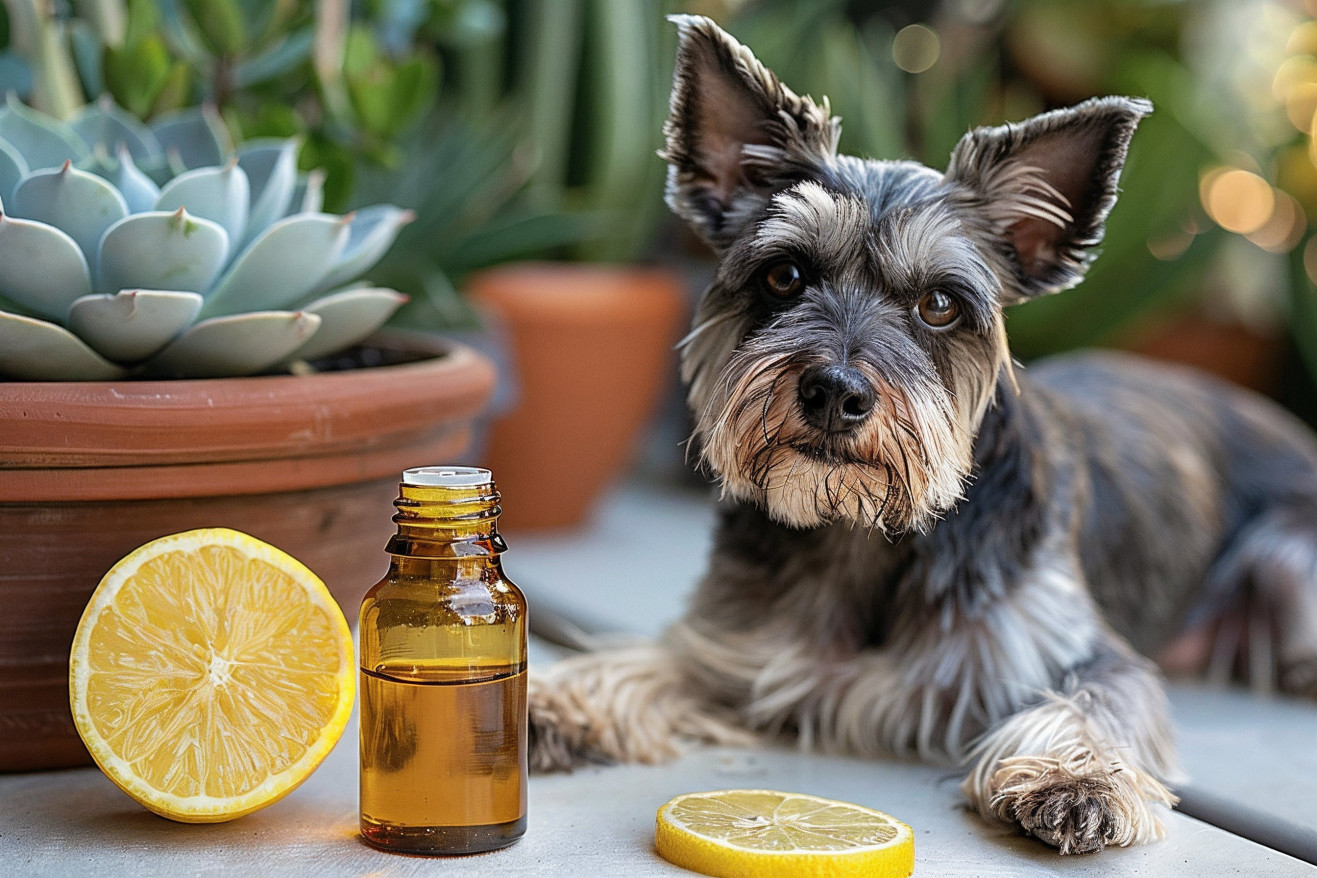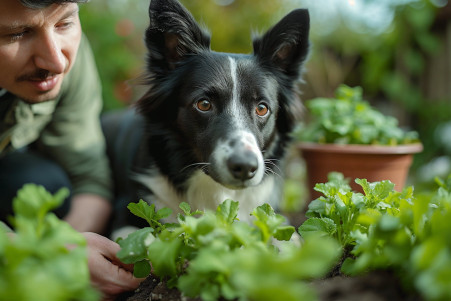Can You Use Lemon Essential Oil on Dogs? What Vets Say
10 April 2024 • Updated 8 April 2024

If you're thinking about using essential oils in your home, especially around your furry friend, you may be wondering if it's safe to use lemon essential oil on dogs. While lemon essential oil is safe to use around dogs in moderation, there are some important caveats to keep in mind. For example, it should never be ingested or applied directly to the skin, as it can lead to skin irritation and other issues. Instead, lemon essential oil can be diffused or used in other ways, such as adding a few drops to bedding, to help dogs feel calmer and more comfortable or to keep pests at bay.
In this article, we'll take a look at what veterinary research and professional organizations have to say about the benefits and risks of using lemon essential oil on and around dogs. By reviewing information from scientific studies and expert opinions, you'll learn about the best ways to use lemon essential oil, including how to dilute it and what to keep in mind based on your dog's age, breed, and health status. With this knowledge, you can decide whether or not using lemon essential oil on or around your dog is the best choice for you and your pet.
Is lemon essential oil safe for dogs?
Risks of Essential Oils for Dogs
Essential oils can be toxic to dogs, especially when they are ingested or absorbed through the skin, according to Pet Poison Helpline®. Symptoms of essential oil poisoning in dogs include vomiting, difficulty breathing, weakness, tremors, and skin or mouth irritation, as noted by VCA Animal Hospitals.
Some essential oils are more toxic than others and should be kept away from dogs. WebMD lists tea tree, pennyroyal, pine, clove, citrus, and peppermint as some of the most dangerous oils. However, even oils that are less toxic can cause problems if they are not diluted properly or if they are used inappropriately. For example, gastrointestinal upset and liver and kidney damage are potential side effects of essential oil exposure that Pet Poison Helpline® warns about.
If a dog is exposed to or ingests essential oils, they should be taken to the vet immediately, as poisoning can be fatal, according to VCA Animal Hospitals. To ensure that dogs are protected from the dangers of essential oils, it's important to get medical help as soon as possible and to use essential oils under the guidance of a professional. However, with the right precautions, some oils may be helpful, as we'll discuss in the next section.
Nontoxic Essential Oils and Proper Dilution for Dogs
In addition to the essential oils that are toxic to dogs, there are some that are safe to use as long as they are properly diluted, according to PetMD. These include lavender, cedarwood, lemongrass, rosemary, and frankincense.
Because dogs have such a strong sense of smell, it’s important to dilute essential oils properly when using them around dogs. A general rule of thumb for diluting essential oils when introducing a new one to a dog is to use a 0.25%-0.5% dilution ratio, according to Forbes Advisor. This will help prevent skin irritation and digestive upset.
To determine the right dilution and usage for a specific dog, it’s best to consult a veterinarian, according to Dogly. However, starting with low dilutions and increasing them as needed can help ensure the safe and effective use of essential oils around dogs.
Helpful Essential Oils and Natural Pest Repellent Blends for Dogs
In addition to pest repellent, some essential oils can also offer helpful benefits to dogs, including stress relief, skin and coat health, and digestive support, says Pupford. Lavender, chamomile, and ginger are some of the most popular essential oils for dogs, according to Pura.
Essential oil blends can also be used to create natural flea and tick repellents, and cedarwood and eucalyptus are two of the most effective oils for this purpose, says Wondercide. That said, it’s important to make sure you dilute and apply essential oils properly when using them to repel pests or for any other purpose to ensure they’re safe and effective.
If you want to use essential oils to create a blend that will help your dog with a specific issue, like anxiety or skin problems, it’s best to talk to a holistic vet who can provide personalized recommendations based on your dog’s unique needs and health concerns, recommends Pupford. With the help of a professional and the right precautions, essential oils can offer natural ways to help your dog feel better.
How to Use Essential Oil Diffusers With Dogs
While essential oil diffusers can be helpful for dogs, it's important to use them with care to ensure safety, says Dr. Dave's Boarding & Grooming. For example, some essential oils, like citrus and peppermint, are not safe to diffuse around dogs, according to Family Handyman, which notes that these oils can be toxic.
Proper ventilation and an escape route for the dog are also important when using diffusers, according to Outward Hound. In addition, diffusers should only be used for short periods of time and should be followed by a break to avoid overwhelming the dog's sensitive nose, says pet groomer and educator Malissa Conti-Diene.
Instead, Family Handyman recommends looking for pet-safe options, like calming toys that have been infused with safe scents, to provide a safer way to add fragrance to your home. By heeding the advice of experts and making sure to keep your dog's needs in mind, you can use essential oil diffusers in a way that's safe for your pet.
Conclusion: Be Cautious and Prioritize Safety When Using Lemon Essential Oil Around Dogs
Although lemon essential oil can be helpful when used correctly, it’s important to be careful and use it in moderation. Never give your dog essential oils internally or apply undiluted essential oils directly to their skin to prevent skin and gastrointestinal irritation. Always talk to your vet before using essential oils, especially if your dog is a puppy, senior, or has an underlying health issue.
Make sure to dilute, ventilate, and supervise the use of essential oils and diffusers around your dog. Always make sure to do your research and follow expert advice and recommendations for safe essential oil use to ensure that you are keeping your dog safe and healthy.


